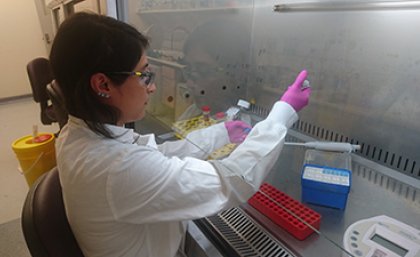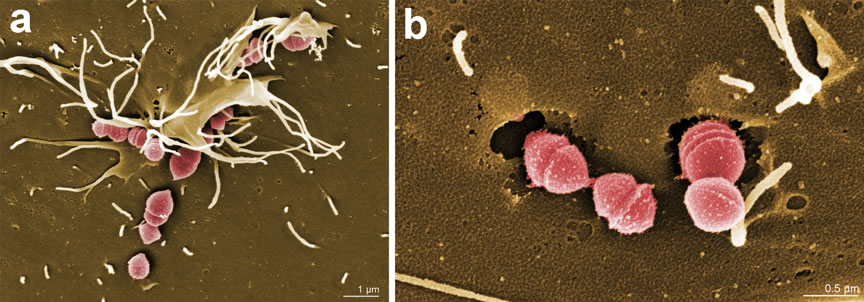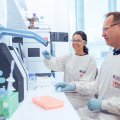
An infection that kills more than half a million people every year could soon be defeated, thanks to the efforts of a prizewinning University of Queensland researcher.
Dr Tania Rivera Hernandez from the School of Chemistry and Molecular Biosciences has won the prestigious Australian Society for Medical Research Queensland Early Career Researcher Award for her work on developing a vaccine for Group A Streptococcus (GAS) – a potentially deadly bacterial infection.
Dr Rivera Hernandez believes the impact of her research could go far beyond preventing a sore throat.
“Pharyngitis, more commonly known as strep throat, is an inflammation of the back of the throat, but the condition’s public health impacts are significant,” she said.
“GAS is a prerequisite for the autoimmune disease acute rheumatic fever, repeated bouts of which may trigger rheumatic heart disease, a major cause of heart failure and stroke in developing countries.”
Her research has focused on the testing and development of Combo5, an experimental vaccine specifically designed to exclude key parts of the bacteria linked to autoimmune complications.
“From our research so far, promising antibody responses have been detected and it looks like there’s a reduction in strep throat and tonsillitis symptoms,” Dr Rivera Hernandez said.
 “It also appears that Combo5 is the only GAS vaccine at this stage in the development process that is shown to provide protection against pharyngitis.”
“It also appears that Combo5 is the only GAS vaccine at this stage in the development process that is shown to provide protection against pharyngitis.”
She said she was delighted to be receiving recognition, after moving to Australia from Mexico to complete her PhD at UQ.
“It’s wonderful that UQ has equipped me with the resources and expertise to potentially help millions of people.”
Dr Rivera Hernandez said there was a long way to go, but she was hopeful that her work would lead to more research and, eventually, an effective and widely-available vaccine.
“We’re really only at the start of this process, but I’m hoping that our research model will be adopted as the gold standard for the assessment of potential GAS vaccines,” she said.
“It would be incredible to reduce cases of acute rheumatic fever and rheumatic heart disease, conditions which affect some of the world’s poorest.”
Image above left: A close-up of Group A streptococcal
Media: Dr Tania Rivera Hernandez, t.riverahernandez@uq.edu.au, +61 433 287 089; UQ Communications, Dominic Jarvis, dominic.jarvis@uq.edu.au, +61 413 334 924.













